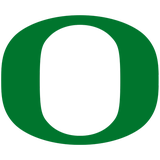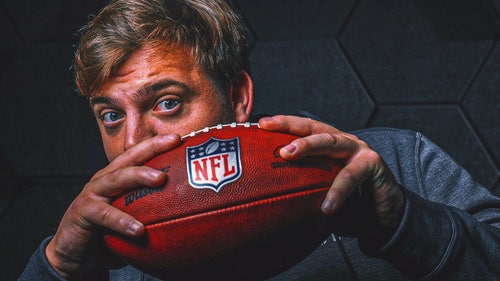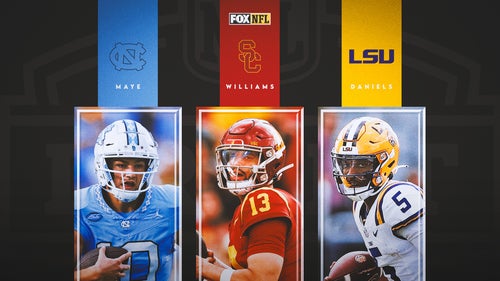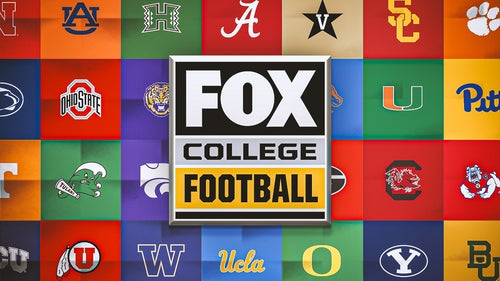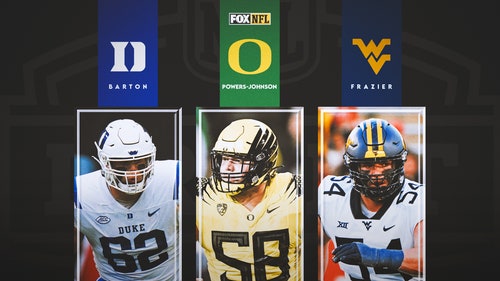
North Carolina seals out Oregon in final seconds to get back to national title game
GLENDALE, Ariz. — The only guy who should think make, Roy Williams says, is the guy shooting the free throw. It is one of the North Carolina coach’s less folksy and far more esoterically practical axioms. He is obsessed with rebounding to a greater degree than many of his peers, yes. But to create a specific teaching point on the thought process of watching a player flip an unguarded standstill shot at the rim …well, that borders on the fanatical. But then comes a night like Saturday, which very much started to feel like a torturous Monday from one year ago. And you realize there is one surefire way to prevent your heart from getting ripped out of your chest: Make sure the other guys don’t even get their hands on it.
North Carolina will play for a national championship for a second straight year, earning the right as 77–76 winners over Oregon and survivors of a Final Four basketball game that felt like a long, slow drag through a dense patch of cacti. The end fit the simmering torture that preceded it, both present and past: At the close of an evening full of choppy offense and interminable fouling, the Tar Heels missed four straight free throws in the final 5.8 seconds and still the Ducks couldn’t even muster a chance to win. The best offensive rebounding team in the country (grabbing 41.7% of available offensive boards) secured two more and squeezed Oregon out of the tournament without a last shot to stay in it.
And, as such, the program scarred last April by Villanova’s last-second dash down the floor and the epic, buzzer-beating, title-winning bomb it produced avoided that nightmare choreography again, less than 12 months later. “Not a lot of teams get another shot at it,” Tar Heels forward Theo Pinson said. “Just the way that game ended, for us to finish and dig in and find a way to win—we’ve been through everything now.”

They surely must feel as though they’ve seen everything now, anyway. Normally efficient, occasionally elegant North Carolina won a Final Four game in which it hit a mere 36.8% of its attempts from the field, committed 22 fouls and recorded just three fast-break points. Generously, it could be said the Tar Heels grinded one out and showed some mettle while doing so. Or it could be said this was a sleepy and flat showing from both sides, and that the victors were more or less saved by the guy they dashed on to the raised floor to hug at the very end. Conveniently, Kennedy Meeks provides a lot to hold on to. Saturday night was no different.
The densely packed 6’10”, 260-pound senior scored 25 points on 11-of-13 shooting while also grabbing 14 rebounds in 30 minutes, undoing Oregon’s most significant advantage on its way to University of Phoenix Stadium: 6'9" junior Jordan Bell tormenting less substantial frontlines. Meeks and Justin Jackson (22 points) represented the extent of the Tar Heels’ offensive hopes for the night. Meeks had accrued just 12 points, total, in the last two NCAA tournament games, but Williams advised him that the national semifinal would be “a man’s game,” as the senior recalled. He responded accordingly. “Of course you always want to be aggressive every game,” Meeks said. “But when things aren’t going your way, you have to figure something else out. Kentucky did a great job of trying to front me in the post [in the Elite Eight] and having another guy in the middle of the lane, so that wasn’t my scoring night. Tonight, you had these opportunities in front of you. It just fell in my favor.”
Still, the decisive sequence of an uneven evening revolved around what people didn’t do, which figured. With 5.8 seconds remaining, Meeks stepped to the line after snaring a defensive board and taking a foul from Oregon’s Tyler Dorsey. The 63% free throw shooter left his first attempt decidedly short. It was a cue for Pinson, who was positioned on the left side of the lane, to take an aggressive line when Meeks’ next attempt was in the air.

And it, too, missed. But Bell didn’t so much as brush Pinson with a box-out. So Pinson leapt and reached and batted the ball back out to the top and into the waiting hands of Tar Heels point guard Joel Berry II. “Jordan just stepped, he didn’t make contact,” Pinson said. “Got a hand on it. I guess he underestimated my bounce.”
Berry II then took his turn at the stripe with 2.2 seconds left to play. He missed the first free throw. This time, Meeks was aligned on the left side of the lane and hatched a plan before the second shot. “I felt like Jordan went in farther than I expected,” Meeks said. “Just trying to get the ball on the front of the rim instead of the left side of the goal. So I just tried to bury him a little bit and grab the ball.” As predicted, Bell dove hard into the center of the lane on Berry II’s next attempt. It missed. But Meeks nudged Bell even deeper into the lane and snared the carom. (“A man’s rebound,” as Jackson put it.) Meeks then quickly disposed of the ball and North Carolina ran out the clock.

It was an incredible scene, but perhaps a little less outlandish to the team that begins transition offense drills by pushing the ball up the floor after made or missed free throws, that instructs players on tap-backs off errant attempts from the line, even if there’s not a specific practice segment dedicated to that somewhat arbitrary art. “First of all, I’ve never been in a game where I missed so many free throws,” Berry II said. “And then secondly I haven’t been in a game where we get the board like that. The other team, you want to give yourself a chance to score. Honestly I thought they would do a better job of boxing out, but you gotta give credit to Theo and Kennedy. They didn’t just accept those box outs. They got around them and worked on the things we worked on throughout the season—if you can’t get it, try to tip it out. And if you do get it, just be strong with it.”
They undercut Oregon’s most abiding strength in doing so.
Sitting deep inside his locker, swarmed by reporters, Bell answered every question with the streaks of tears still visible on his face.
On Pinson’s rebound: “He just out-jumped me. He wanted it more.”
On Meeks’ rebound: “He just out-toughed me. He just took it from me.”

He later declared himself the reason that Oregon lost the game, though it was easy to argue that the Ducks would not be anywhere near the Final Four without Bell’s three double-doubles in four previous NCAA tournament games, without his terrifying rim protection, without his ability to single-handedly compensate for the sudden and presumably season-killing absence of Chris Boucher due to a torn ACL.
“That's how it is,” said Bell, who finished with 13 points and 16 rebounds on Saturday. “You play your ass off for the whole year. This is the game that matters. This is the moment that matters. I didn't do my job. I knew if I got it we would have scored. Somebody would have scored. All I had to do was get the rebound.”
That fear was all too real for the Tar Heels. They knew what could happen if anyone but one of their own secured the ball and turned up the court, making a chaotic run toward one more shot, and in this case exhilarating extension of a season at the expense of North Carolina’s own. And the best way to avoid another waking nightmare is to make sure the other team doesn’t get a chance to create it. For this, one program is as prepared as any.
The shots went up. They missed. North Carolina players grabbed the rebounds. And they held on.
